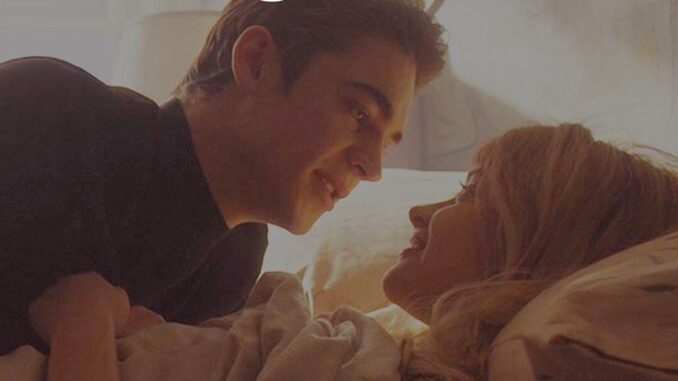
The After series follows Tessa Young, a college freshman, whose life transforms after meeting Hardin Scott, a brooding bad boy with a troubled past. Their relationship, marked by passion, betrayals, and emotional highs and lows, drives the narrative across five books: After (2014), After We Collided (2014), After We Fell (2014), After Ever Happy (2015), and After Everything (2023). Tessa’s arc is one of self-discovery, as she navigates love, family secrets, and her ambitions, often caught between Hardin’s magnetic pull and her need for stability.
After Ever Happy picks up after the devastating revelations of After We Fell, where Tessa and Hardin face new challenges, including family tragedies and personal insecurities. The book, published in 2015, and its 2022 film adaptation explore whether their love can survive or if Tessa will choose a different path. The question of who Tessa ends up with is central, as her relationships with Hardin and other characters, like Trevor Pike, shape her decisions.
The resolution isn’t without nuance. Tessa’s choice reflects her acceptance of Hardin’s flaws and her belief in their shared growth, though some fans argue it prioritizes passion over practicality. Posts on X reflect this divide, with one user noting, “Tessa choosing Hardin makes sense for the story, but Trevor was the safer bet.” The book’s fifth installment, After Everything, and its 2023 film further cement their happy ending, addressing lingering doubts.
Tessa’s decision hinges on the contrasting dynamics of her relationships:
-
Hardin Scott: Played by Hero Fiennes Tiffin in the films, Hardin is intense, flawed, and deeply devoted to Tessa. Their chemistry, rooted in passion, is tested by his jealousy and her need for trust. In After Ever Happy, Hardin’s growth—seeking therapy and confronting his past—tips the scales, proving he’s worthy of Tessa’s love. Their shared history, from college romance to cohabitation, makes their bond unbreakable, despite toxic moments.
-
Trevor Pike: Introduced in After We Collided, Trevor (Dylan Sprouse in the films) is a coworker at Vance Publishing who offers Tessa kindness and stability. His respectful demeanor contrasts with Hardin’s volatility, sparking brief romantic tension. In the book, Tessa considers Trevor during a breakup with Hardin, but their connection lacks the depth of her feelings for Hardin. The film downplays Trevor’s role, focusing on Hardin’s redemption.
Tessa’s choice of Hardin over Trevor or independence reflects the series’ theme of transformative love. Critics on Reddit note that Trevor’s “nice guy” archetype, while appealing, couldn’t rival Hardin’s narrative weight, with one user stating, “Trevor was a plot device, not a real contender.”

The After fandom, active on X and Wattpad, has mixed feelings about Tessa’s choice. Many celebrate the Hardin-Tessa (Hessa) happy ending, with X posts like “Hessa forever! The epilogue in After Ever Happy is everything 😍.” The film’s wedding scene, shared on YouTube, garnered millions of views, with fans praising the emotional payoff. However, others criticize the relationship’s toxicity, arguing Tessa deserved better. A Reddit thread debated Hardin’s red flags, with a user commenting, “Tessa choosing Hardin feels romantic but unhealthy.”
The controversy extends to the book versus film. Book fans appreciate the epilogue’s detailed family life, while some film viewers found the time jump abrupt, per ScreenRant. The casting of Josephine Langford as Tessa and Fiennes Tiffin as Hardin remains a highlight, with their chemistry lauded even by detractors. Fanfiction on Wattpad continues to explore alternate endings, with some pairing Tessa with Trevor or imagining her single.
After Ever Happy and the After series transformed the romance genre, evolving from a Harry Styles-inspired Wattpad story to a global franchise. The books sold over 15 million copies, and the films grossed millions, per Variety. Tessa’s journey resonated with young adults, sparking discussions about love, toxicity, and self-worth. The series’ portrayal of a neurotypical woman navigating intense relationships also drew parallels to shows like The Good Doctor, where emotional stakes drive the narrative, though the contexts differ.
